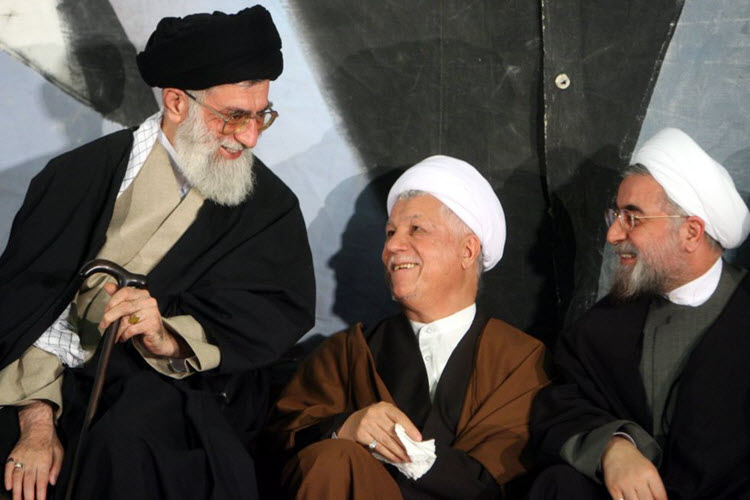
Iran Focus
London, 13 Jan – In an opinion piece contributed by Majid Sadeghpour, political director of the Organization of Iranian American Communities in the U.S. (OIACUS) on January 12 in The Hill, he writes about the affect of Donald Trump’s election, and the death on Sunday, of Ali Akbar Hashemi Rafsanjani, on the Iranian regime.
The Islamic Republic of Iran views the next president of the United States with apprehension, and unease. Mr. Trump’s campaign promises included dramatic shifts in American policies, and decried President Obama’s Iran nuclear deal, The Joint Comprehensive Plan of Action (JCPOA).
Iran has already twice exceeded defined limits on its stockpiles of heavy water, and the Islamic Revolutionary Guard Corps (IRGC) has conducted a number of ballistic missile tests, which is in defiance of United Nations Security Council’s resolutions regarding the development of weapons capable of carrying nuclear warheads. It has threatened and provoked U.S. forces in the Persian Gulf.
Mr. Trump has clearly defined these actions as unacceptable.
The in-coming National Security Advisor and Secretary of Defense, are proof that the President-elect should be taken at his word. Further, the specific measures that the incoming Trump administration will take remain unclear.
The prospects of a substantive shift in U.S. policy are made more challenging after this weekend, when the regime’s future was made even more tenuous by removing one of its two pillars, Ali Akbar Hashemi Rafsanjani, who died of cardiac arrest.
Rafsanjani began his political career in the Islamic republic as the head of its parliament, and then served two terms as president (1989-1997). He also headed the powerful Assembly of Experts, who select the supreme leader, and was the chairman of the Expediency Council.
As Madam Maryam Rajavi, opposition leader and President-elect of the National Council of Resistance of Iran (NCRI) noted, Rafsanjani “was associated with some of the regime’s most egregious actions, including mass-casualty terror attacks and the assassinations of exiled dissidents.”
He was the number two figure in the clerical regime, which is a fact that is at odds with his portrayal in Western media as a “reformist.” In reality, Rafsanjani was possibly the leading architect of Iranian foreign policy for three decades.
This ‘moderate-seeming approach continued with 2013 election of Rafsanjani’s protégé, Hassan Rouhani, as the Iranian president. Rouhani’s willingness to work with the United States to negotiate a nuclear deal let global policymakers believe there would be change in the regime’s behavior.
While the three years of Rouhani led to a nuclear accord, the regime’s behavior continues to spread dissent across the Middle East and within Iran itself. The Iranian people have endured nearly 3,000 executions under Rouhani. There have been massive crackdowns on women, youth, social and political activism, the press, the arts, all while the appearance of pro-Western attitudes remain central to Tehran’s survival. The narrative of moderation continues to survive in the West.
Sadeghpour writes, “This should not come as a surprise, considering that during Rafsanjani’s rise to power, a similar narrative provided the unintended cover for the regime to carry out various state-sponsored assassinations, bombings by Iran-backed terrorist groups, and even the massacre of 30,000 political prisoners during the summer of 1988. Rafsanjani participated in all of this, yet his willingness to make backchannel deals with U.S. officials, as in the case of the Iran-Contra Affair, earned him an absurdly positive reputation.”
The Trump administration is not expected to become hostage to this myth of the moderation narrative. His ascendance in the United States has shaken the regime, and it would take a tremendous act of self-delusion for the U.S. to convince itself that Iran is heading toward more moderation, especially in after Rafsanjani’s death.
With Rafsanjani’s death, regime lost a stabilizing force. Policy changes, formulated and executed by the new U.S. president, is likely forthcoming. These factors may force different dynamic in Iranian politics, which will be deprived of undue foreign assistance and internal stability.
“The unelected ayatollahs in Iran will at last have to contend with 80 million disenchanted people while working hard to manage Tehran’s over-extended tentacles that reach across the region,” writes Sadeghpour, who believe that, “Neither appeasement nor military action against Iran will be productive. The only viable alternative is to stand with the Iranian people and their organized opposition, supporting their aspirations for a free, secular, non-nuclear and democratic Iran that respects international covenants.”